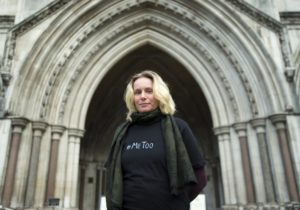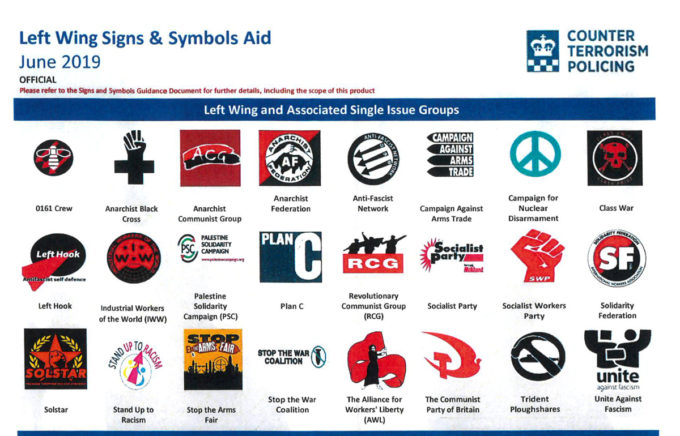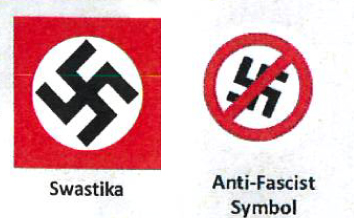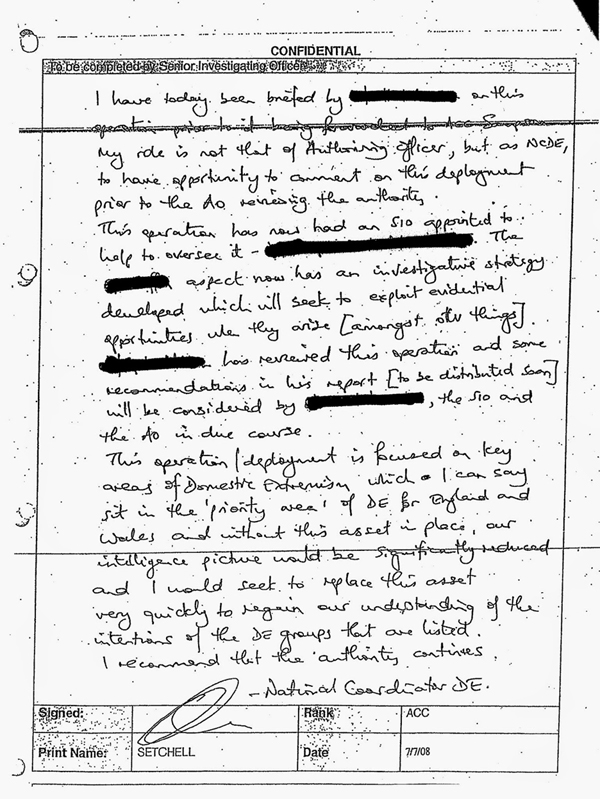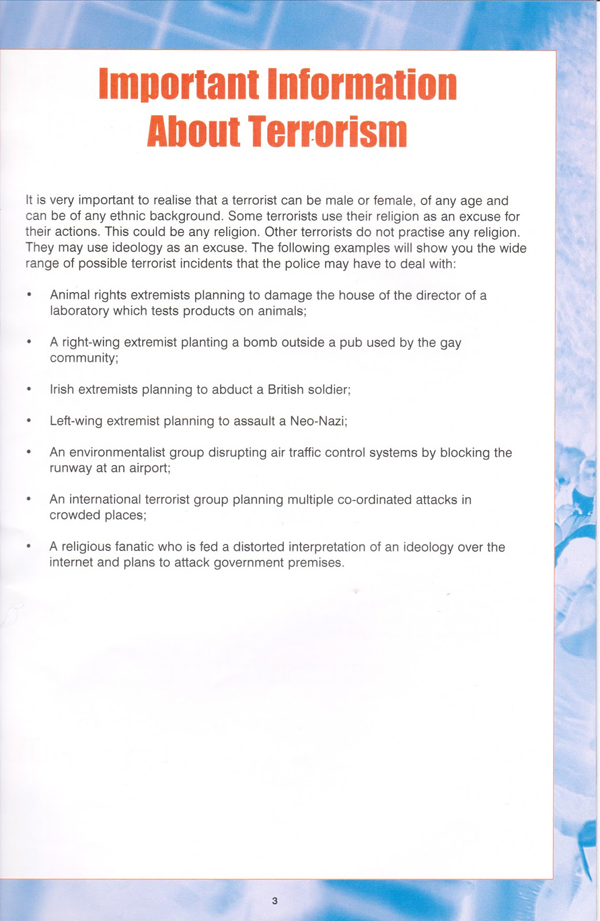UCPI Daily Report, 6 Nov 2020
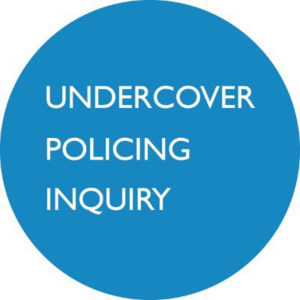 Tranche 1, Phase 1, Day 5
Tranche 1, Phase 1, Day 5
6 November 2020
Evidence from:
James Scobie QC (Core Participants represented by Paul Heron)
Ruth Brander (Non-Police, Non-State Core Participant Group)
Lord Hendy QC (Fire Brigades Union and Unite)
Gareth Peirce (National Union of Mineworkers)
It was a day based around trade unions who were spied on by the political secret police.
James Scobie QC
(Core Participants represented by Paul Heron)
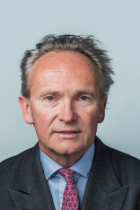
James Scobie QC
It began with James Scobie QC, speaking on behalf of those represented by Paul Heron from the Public Interest Law centre.
RICHARD CHESSUM & MARY
Scobie explained that he represented two people who were spied on the period covered by ‘Tranche 1’ (1968-72) – Richard Chessum and ‘Mary’ – as well as others who were spied on many years later.
He said the controversial tactics used by these units were introduced right at the start, and allowed or actively encouraged in the years that followed. These weren’t due to a handful of ‘rogue officers’, or something that only developed slowly over time.
The State knew from the start that the spycops were being sent in to impede and slow the work of democratic organisations fighting for positive social change. They were systematic and systemic. The Governments of the day knew must have known how these units were operating, and we want to know the extent to which these abuses were endorsed and instigated at the highest level.
Either the spycops were endorsed by the Government, or successive administrations were powerless to prevent these secret police operating with impunity: which is most frightening?
Scobie also spoke of the impact on victims of this Inquiry, its many lengthy delays and the continuing lack of disclosure, even to Core Participants. He questioned whether it was the police or the state obstructing the work of the Inquiry. If the state was unable to force its own police to cooperate with the Inquiry, or whether the failings were the fault of the Inquiry itself.
Scobie pointed out that none of his clients were serious criminals, or violent, and the spycops knew this, but targeted them anyway. The State subjected victims to wholesale manipulation and exploitation and, in the case of ‘Mary’, sexual violation.
The Special Demonstration Squad (SDS) was set up in 1968, ostensibly to deal with public order situations. But within a short period of time it was being used to curtail the activities of many peaceful, democratic organisations whose aims were supported by significant sections of society.
TARGETED YET PROVEN RIGHT
History has proven that many of the activists were right and their causes just. Both ‘Mary’ and Richard Chessum campaigned against the use of internment without trial in Northern Ireland; they campaigned about the events of Bloody Sunday; they campaigned against apartheid. History has proven them right time after time. They worked to highlight the institutional racism of the police: something that was only officially accepted many years later. However, the spycops set out to undermine their campaigns, and therefore to prolong the violence.
The organisations they were in that were infiltrated (the Troops Out Movement and others) were open to the public and posed no threat to anyone. But they did oppose state policies, and for this, they were targeted by deceitful spycops. This was political policing, not criminal policing.
It was overwhelmingly left-wing groups who were spied on. ‘Mary’ recalled watching the National Front smash up a meeting while the police looked on. Rather than concentrating on groups that fracture community cohesion, the spycops went after those who were campaigning for better conditions for everyone. According to the list made available by the Inquiry, up to the end of the 1970s we only know of three right-wing groups who were reported on.
Conrad Dixon, the SDS founder, instructed his officers to be ‘followers not leaders’ in the groups they infiltrated: to avoid taking office, chairing meetings, initiating actions, making leaflets or speaking in public.
Despite his specific prohibitions, it is now clear that by 1974, these guidelines were being ignored. From 1974 to 1976, ‘Rick Gibson’ (real name Richard Clark, now deceased) was a London organiser in Big Flame, and chaired meetings. He then became joint National Secretary of the Troops Out Movement, undermining the group.
Clark’s reports were sent to Special Branch and MI5 by senior officers, so it is clear that his activities were sanctioned by the state, and it is not credible to suggest that the government wouldn’t have known about this intelligence gathering. Let’s be clear, inhibiting groups of this kind equates to inhibiting democracy itself.
We heard more details of one of the victims, Richard Chessum, who was described as a decent, caring person, a committed Christian who campaigned for peace, was involved in CND as well as the Labour Party, and now works to help homeless asylum seekers.
SPYCOP INSTIGATOR
Chessum was targeted by Clark, who socialised with him, encouraged him to set up a local Troops Out branch, but reported on him, his sister and his partner. Why was Chessum’s trust betrayed in this way? And why was this done to numerous others like him in the decades that followed?
Chessum had no criminal record. Despite this, the information gathered by Clark was passed to the security services, and Chessum found himself refused employment multiple times. From academic and research posts to a Royal Mail sorting office where he scored 86% on the entry test, time and again, he was refused. When he asked why Royal Mail rejected him, he was told that they were “not at liberty to say”. That is utterly Orwellian.
Thousands of people found themselves blacklisted for their political views. In 2013, it was confirmed that intelligence gathered by the spycops had been used to create the blacklist.
‘Mary’ knew Chessum in the 1970s. She was a student at Goldsmith’s and a member of the Socialist Society (campaigning for student welfare, creche provision, supporting trade unionists) as well as a supporter of the Troops Out Movement. This is why she was targeted by Richard Clark, who deceived her into a sexual relationship. She is adamant that she would never have had a relationship with him if she’d known he was a police officer.
We know that Clark had at least four sexual relationships (including one long-term one) while undercover. Clark’s exit strategy was similar to that used by later officers. He wrote a letter to his long-term partner after his deployment ended, with more lies.
The spycops had total disregard for the women sexually exploited in this way. This was a deliberate tactic used extensively by multiple spycops from the 1970s onwards. It was “part of the DNA of political policing” in the UK, and nothing less than state rape.
Scobie went on to mention the theft of dead children’s identities by officers creating their cover names. The police lawyers prefer to refer to them “using” the names, rather than “stealing” them. But it was done dishonestly, with no consideration of the likely impact on these dead children’s families.
At the beginning of the SDS, Commander Dixon referred to officers needing “to obtain necessary papers”, implying that they had to do this for themselves, with no written guidance. However by the 1990s, this had become long-established practice, as we can see in the SDS’s Tradecraft Manual.
Unfortunately for ‘Rick Gibson’, suspicious activists found ‘his’ death certificate, and challenged him. Clark was rumbled.
Instead of changing their tactics after this failure, the spycops continued committing identity theft.
While both ‘Mary’ and Richard Chessum say that Clark did not incite criminality, we know that other spycops certainly did in later years.
LOIS AUSTIN & HANNAH SELL
Lois Austin and Hannah Sell had their lives infiltrated in the 1990s. They’d joined the Labour party together, and were leading figures in Militant Labour (which became the Socialist Party in later years). They were instrumental in setting up Youth against Racism in Europe (YRE), a mass organisation advocating peaceful change: jobs and homes, not racism.
There was a spike in violent racist attacks in South East London after the British National Party set up its infamous bookshop/ headquarters there. This included at least one racist murder every year. As a result, local anti-racists like Lois and Hannah campaigned to shut the bookshop down. This is when spycop Peter Francis was sent to spy on YRE.
PETER FRANCIS & CARLO SORACCHI
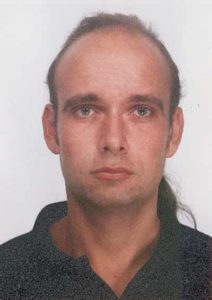
SDS officer Peter Francis, undercover in the 1990s
Peter Francis’s deployment lasted for five years. It started within YRE but followed Hannah Sell and Lois Austin over the years into Militant Labour. Francis was followed into Militant Labour, which was by then known as the Socialist Party, by another officer, ‘Carlo Neri’ (real name Carlo Soracchi).
Francis and Soracchi followed the SDS playbook to the letter. They used the whole array of dirty tactics that had been in play for at least 20 years. Francis became secretary of the Socialist Party’s Hackney branch. He and Soracchi realised that holding office in the organisation meant he was able to attend regional and national conferences.
Both officers infiltrated social groups. Both had at least two sexual relationships with women they were spying on. Their victims remember both of them encouraging and engaging in criminal behaviour.
For example, Francis repeatedly tried to incite YRE members to physically attack fascists, Sell and Austin used to respond to him by arguing that defeating fascism required patient campaigning. Sell has no doubt that this was a deliberate attempt on his part to encourage them to commit offences for which they could be arrested.
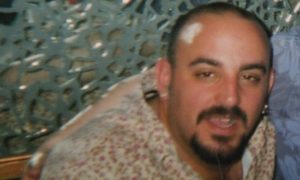
SDS officer Carlo Soracchi, undercover in the 2000s
Soracchi repeatedly attempted to persuade his ‘comrades’ to take part in even more serious criminal activity: arson. He actually took activists to a shop in London, which he told them was owned by an Italian fascist (Fiore, implicated in the 1980 Bologna bombing), and suggested they burn it down. They refused to do so. It was in a residential street. This was not the only time when a spycop seriously advocated the tactic of arson to those they were spying on, something that would have resulted in long jail sentences.
Questions must be asked. Why did they do this? Was it to discredit the campaigners? To maintain their cover? To justify the spycops units’ very existence by making them seem like they were infiltrating dangerous groups?
The CHIS Bill (currently going through parliament) would legitimise tactics of this kind; is its introduction an attempt to pre-empt any findings from this Inquiry?
Peter Francis and Carlo Soracchi didn’t just infiltrate pressure groups, they both infiltrated a political party, and this is interference in democracy. It is known that other spycops infiltrated the Labour Party, the official party of opposition at the time.
DAVE NELLIST
Dave Nellist served as the Labour MP for Coventry South East from 1983-1992. During this time, he had one of the highest voting records in parliament. He set himself a salary equivalent to the average wage of a skilled worker in his constituency, and gave the rest of his parliamentary allowance away to good causes. He made himself unpopular with his colleagues when he campaigned against pay-rises for MPs!
Despite being named ‘Backbencher of the Year’ in 1992, in that year he was expelled from the Labour party for his opposition to the unpopular poll tax. He went on to launch the Socialist Party after this.
Dave Nellist was being spied on while a serving Member of Parliament. He was targeted because of his views, his beliefs, his steadfast and long-lasting opposition to the Government of the day.
According to whistle-blower spycop Peter Francis, there was an MI5 officer spying on Militant/ the Socialist Party. Cabinet papers from 1984 show an awareness in government of of Militant members in various trade unions – including the civil service union, CPSA, now known as the CPS, which Lois Austin is a member of – which was viewed with alarm by MI5. Thatcher said the state should be “very ready” to sack such subversive employees.
We now know that MI5 asked West Midlands police to spy on Nellist. The Chief Constable must have been asked.
How would they have been in a position to put a spy into his constituency office?
Who would the spycop have been accountable to?
Who would have authorised this arrangement? The police, or the Home Office, or both?
Which Home Secretary authorised the spycops to target an MP?
Was this done with or without the knowledge of the Prime Minister?
We know that the SDS was funded directly by the Home Office until 1989. We know that when the unit was first set up, the Home Secretary was put under pressure “from above” to do so. We know that the Home Secretary feared the public exposure of spycops. There are many questions for this Inquiry to answer.
So far the only disclosure we’ve had from the Inquiry has consisted of police files. There are no Government records. It is clear that this Inquiry cannot reach the truth or genuine accountability if they rely on the police to provide full records.
Supposedly there are zero documents about the SDS in the entire Home Officer archives (even though the Home Office provided all the funding for over 20 years). What exactly has the UCPI done to discover how high this scandal goes?
There appears to have been a high level of collusion and collaboration – the Metropolitan Police, MI5, the Home Office, other police forces around the country were all involved – but will the spycops be left to ‘carry the can’ alone?
TELL US WHO & WE’LL TELL YOU WHAT
It is possible to uncover some information about government interference in trade unions. The Shrewsbury 24 campaign has – on a far lower budget than this Inquiry – managed to unearth documents that prove this.
Though more than five years that have passed since this Inquiry was first announced, the majority of Core Participants have yet to receive a single document relating to the spying they suffered. Even those involved in this first tranche have not been given access to witness statements, which we know are relevant to them.
Giving us the names of the people who spied on us decades ago, without any other details or a contemporaneous photographs, is not enough to jog memories. Why has this Inquiry chosen not to share the material we need if we are to engage effectively?
The only disclosure so far has consisted of heavily-redacted intelligence reports, but nothing relating to policy. If the Inquiry has these documents, why have they not been shared with us? If the Inquiry still doesn’t have these documents, what does that tell us about the government and the police, and the likely outcome of this (expensive) process?
We are left wondering how many people have been spied upon, and had their lives changed irrevocably by the spycops, because the state didn’t like their politics.
We still haven’t been given the exact number, and the names, of the groups known to have been reported on. How can this be described as an ‘open’ or public inquiry? How can the public understand the industrial scale of these abuses without information?
We don’t just want to see a few individual (and, to the state, expendable) spycops’ necks on the block in order to save the reputations of the guilty people higher up. This Inquiry must properly investigate, and find out who was responsible. It must ensure that the victims of these abuses are fully included, otherwise the Inquiry will just mirror the disdain shown by the spycops themselves.
We don’t just want a condemnation of certain methods used by these units; we want an end to all political policing.
The accompanying written opening statement from James Scobie QC on behalf of the Core Participants represented by Paul Heron
Ruth Brander
(Non-Police, Non-State Core Participant Group)

Ruth Brander
The next speaker was Ruth Brander, who represents all the Non Police/ State Core Participants (NPSCPs) at the Inquiry, apart from families of police officers, and whistle-blower officer Peter Francis.
She started by saying the core participants want to know what was done to them personally, and how spycops were allowed to undermine civil society in the UK and beyond for over 50 years. They think that the Chair is not exactly helping them to get there.
LIVE-STREAM THE EVIDENCE HEARINGS
Almost every decision taken by the Chair has reduced his prospect of getting to the truth.
Brand then made a strong plea for live-streaming of the witness hearings, which start on Wednesday next week:
As soon as the evidence phase begins, she said, public access to the hearings will be restricted to just 60 people, many of whom will be lawyers. It is stretching credulity to suggest that there would be any significant risk to any of the officers if their evidence were be live-streamed, as these particular hearings address events of 50 years ago. Besides, other Inquiries – such as the Child Sexual Abuse Inquiry – have proper security in place to prevent information being wrongly released by live-stream. It can be done, so the refusal is a choice rather than a necessity.
Spycops get anonymity at the Inquiry to protect their comfortable life in old age and their social reputation, not their security. Some have spoken publicly before and nothing untoward has happened to them. Moreover, anonymity was granted to spycops several years ago, when we expected a public hearing. But the pandemic has changed the situation completely, it means we don’t get to be present, and if we don’t get live-streaming, this would make the public inquiry a private inquiry. Reading a transcript is not the same thing.
Brander then explained the victims of undercover officers have four big concerns:
1. Significant resource for the Inquiry
When the Inquiry was announced we hoped the victims would be at the heart of the process and would at least see their files. But more than five years later, almost nobody has received anything at all. Requests have been dismissed by the Chair as “unhelpful distractions”. Not only does this run contrary to the Inquiry’s obligations under the Data Protection Act 2018, it is counter-productive. It will affect Inquiry’s ability to get to the truth.
Given disclosure, victims of spycops would be able to help the Inquiry to fulfil its purpose. But the Inquiry hasn’t searched thefiles the Met holds on those named as core participants. Incases the Inquiry was told people were indeed mentioned in Special Branch files, the Inquiry failed to ask for the full file. Victims are appalled by this.
2. Give us the names
Brander then challenged the false distinctions being drawn between various individuals and groups by the Inquiry. The Chair refuses to make disclosure to those NPSCPs whom he deems not to have a “direct interest” in a particular period. This means that those CPs and their lawyers do not get access to the hearing bundles of documents until after the hearing at which the evidence is given. The Inquiry is effectively shutting out the active participation of victims, and thus undermining public confidence in the eventual conclusions.
Also, the Inquiry has done little to inform people who’ve been spied on (apart from some of those deceived into sexual relationships). For instance, the Inquiry intends to give only six of the names used by the 21 officers of the NPOIU (the unit of Mark Kennedy).
People spied on can’t come forward if they don’t know which of their old friends was in fact an undercover officer. We have repeatedly asked the Inquiry to publish a list of all of the groups that were spied on so that members of the public will know if there is a possibility that they were targeted.
How can the Chair evaluate if spying was justified when he only talks to the spies? Those who were spied on will not get an opportunity to give their account, if the officers’ cover names are restricted, or if there isn’t full disclosure of group and personal files
How is the Chair equipped to decide which campaigns were justified targets, especially the more recent ones where issues remain contentious?
Publishing the list of groups that were spied on would also increase public understanding of the issue because it would demonstrate the reach of undercover political policing. It is still a common public misperception that undercover policing has been limited to groups and individuals involved in serious criminality. Publication would dispel that impression.
By not being more proactive in its search for non-state evidence, the Inquiry is likely to miss significant information, in particular, in respect of its task of assessing the scope of undercover policing and its effect on the public.
The Inquiry is still a very, very long way from a position that would enable it to benefit properly from full participation by non-state core participants.
3. Don’t trust the police to self-disclose
The Inquiry relies on police to be the principal source of evidence, while they are the very body under investigation. In cases where cover names are restricted, they will be the ONLY source of evidence. This happens in the context of units whose entire ethos was to keep everything secret, who have a woeful history of non-disclosure, and who have have committed significant wrongdoing, including, numerous admitted human rights violations.
In an inquiry into their wrongdoing, they cannot be trusted to tell the whole truth.
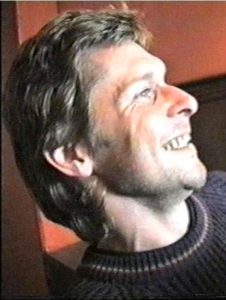
Lied to the Inquiry: Undercover officer James Straven, 1998
Undercover officers deployed in the political policing units knew, from the outset, that it was very unlikely that they were ever going to have to account for their actions. This led, inevitably, to a culture of impunity.
This culture of secrecy is so ingrained in these units that it is incomprehensible that the police records and evidence should now be approached by this Inquiry as a reliable – and in many cases, exclusive – source of information about their activities.
Discovery that ‘James Straven’ lied to the Inquiry, twice, in signed witness statements in support of his application for restriction orders, does not appear to have altered the Chair’s approach to other spycops denying they engaged in intimate relationships whilst deployed.
Documents relevant to the Undercover Policing Inquiry were shredded by Metropolitan Police personnel in May 2014, after this Inquiry had been announced and after a command circulation had been issued specifically stating that such material should not be destroyed.
HM Inspectorate of Constabulary made this point themselves in their 2012 report.
The culture of impunity was reinforced by the units collecting intelligence rather than evidence, and consequently their methods were never scrutinised in a criminal trial. Where they did have interaction with courts, undercovers lied and misled.
The SDS undermined the Stephen Lawrence inquiry, and the the Met also withheld evidence of police corruption from -, as detailed in Mark Ellison’s report from 2014.
We can’t trust the police to be their own honest archivists. Moreover, the victims have no confidence that the police will give the Inquiry proper disclosure beyond tactical damage limitation.
4. Install a panel
The Inquiry’s terms of reference require it to reach decisions about the motivation and justification for undercover policing operations. In respect of the vast majority of the groups spied on by the Special Demonstration Squad and the National Public Order Intelligence Unit, those are inherently political questions. The Chair has already made comments which are indicative of a dismissive view of groups whose political ideologies differ from his own. This is a matter of real concern.
In case she wasn’t already clear enough, Brander said to Sir John Mitting “with respect, the concern is you sir”.
The NSPCPs have real concerns about the Chair sitting alone to determine the issues of fundamental importance in the Inquiry.
The Inquiry will have to confront the extent of political policing, institutional (and individual) racism, sexism, class and political bias in the targeting and conduct of spycops operations.
The Undercover Policing Inquiry’s Chair has no experience of sexism or racism. He needs a diverse panel to advise him, but refuses to appoint one.
If the Chair continues to sit without a panel’s assistance, he has the heavy burden of challenging his own biases. It’s made harder by the secrecy around the evidence he will examine.
We urge the Inquiry to:
• facilitate proper public access to proceedings;
• enable non-state core participants to participate meaningfully and effectively by giving them disclosure;
• publish the full list of groups spied on;
• publish photographs and cover names of all undercover officers.
Without these it’s hard to see how the Inquiry can fulfil its purpose of getting to the truth.
With that, Brander concluded. Inquiry Chair Sir John Mitting responded: ‘all I can say is that I hope to prove you wrong’, dismissing everything Brander had given reasoned, evidenced points for. He may hope to prove her wrong, but with that offhand dismissal he proved her right.
Mitting’s immediate, offhand dismissal of all the reasoned and evidenced proposals is utterly repellant, exactly the sort of thing she was saying needs to change, and in keeping with what we’ve been used to from Mitting and the police. It’s why we have so little faith in the process.
The accompanying written opening statement from Ruth Brander on behalf of the Non-Police, Non-State Core Participant Group
Lord Hendy QC
(Fire Brigades Union and Unite)
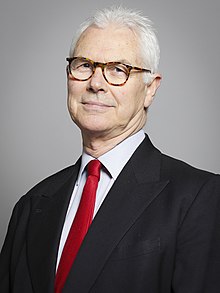
Lord Hendy QC
Lord Hendy QC spoke for the Fire Brigades Union and Unite the Union
The first thing Hendy pointed out that his two clients were far from the only trade unions believed to have been targeted by spycops. The Communication Workers Union, National Education Union, National Union of Journalists, Rail Maritime & Transport Union, Public & Commercial Services Union and the GMB all have good reason to be here too.
TRADE UNIONS: FROM ILLEGAL TO INDISPENSABLE
Hendy began with a detailed history of trade union rights. Trade unions have been around for about 300 years, just trying to improve conditions for working people, but they had to fight to become lawful.
Trade unions were illegal under the Combination Acts until 1824, but even after that they had stringent limits. A trade union’s leverage comes from the possibility of industrial action, but collective bargaining remained illegal as a ‘restraint of trade’. Over the 19th century, they became lawful and accepted, though the threat of a strikes and pickets was held to be unlawful conspiracy until 1885.
It was not until the Trade Disputes Act 1906 that unions were truly free to threaten or take industrial action. By the end of the first world war collective bargaining became the policy of government, and remained so with all governments up until 1980.
Trade unions are involved in political campaigning beyond their direct interests because, through the experience of working under poor conditions, they have seen that poverty anywhere constitutes a danger to prosperity everywhere.
There can be no legitimate infiltrating of trade unions acting in their usual functions. Regulation of trade unions is a civil issue, not a criminal one, so it should have nothing to do with police. If some trade unionists act criminally, that’s a specific individual issue, it doesn’t in any way justify infiltration of unions by spycops.
The right to strike & picket is protected by a raft of international treaties to which the UK is a signatory. It is part of civic life. Union activity cannot be treated as a threat.
Trade unions act as a balance to the power of multinational corporations. Today’s unions ensuring protection of workers during the pandemic shows they are as needed, and benevolent, as ever.
SPECIAL BRANCH INDUSTRIAL UNIT
It’s only now, five years in, that the Undercover Policing Inquiry is starting to take evidence. Worse than the delay is the paucity of documents.
Hendy said his clients have seen a grand total of two documents from the Inquiry. Yet we know there has been long term spycops focus on unions.
Beyond the Special Demonstration Squad (SDS) and National Public Order Intelligence Unit (NPOIU), the two undercover units with which the Inquiry is primarily concerned, it’s worth noting that the Metropolitan Police’s Special Branch had an Industrial Intelligence Unit from 1970. It plainly existed to spy on unions.
The Inquiry says there’s no evidence of spying on unions in the early years of the SDS, 1968-72, which it will examine in these first hearings. We note that the police lawyers’ denials of SDS spying on unions didn’t mention the Special Branch Intelligence Unit’s spying. Its very existence shows spying happened. We want to know more about the Special Branch Industrial Unit, especially its relation to that other Special Branch unit, the SDS.
In 2015, whistle-blower spycop Peter Francis admitted that he had personally reported on members of five unions when he was an undercover officer in the 1990s. His colleague Mark Jenner was a member of construction union UCATT.
Additionally, Helen Steel, Donna McLean, and ‘Alison’ were all trade union representatives when undercover officers deceived them into long-term intimate relationships.
1973: SPYCOPS TARGETING UNIONS
A Special Branch report dated 28 November 1973 details a conference held by the International
Socialist party earlier that month in Manchester.
In the report, spycop John Clinton records the names & addresses of attendants at a conference, naming their union membership or allegiance.
The report has given each of the unions have their own code numbers. Specifically, the prefix 400 seems to refer to trade unions in the spycops’ filing system. It must have already been an established part of the intelligence gathering.
The 1973 report also refers to the Shrewsbury 24, members of UCATT and other unions, who were charged with Conspiracy to Intimidate by police during the 1972 Building Workers Strike. Several of them were jailed.
Nearly 50 years on, earlier this year the Criminal Cases Review Commission decided to look at the convictions, and it seems they may well be quashed.
The SDS’ early annual reports we’ve seen from 1968-74 show that its main targets were left-wing groups. There is no reference in these reports to trade unions, despite trade disputes being the backdrop of the groups being spied upon.
The 1974 SDS annual report says the Shrewsbury 2 Defence Committee had been penetrated. It will have been trade unionists, successor to the Shrewsbury 24 Defence Committee.
What justification was there for spying on this campaign at all? Where was the risk of crime? The infiltration was surely to monitor whether the Shrewsbury campaign was having any success in proving police had fitted up those who were convicted.
POLICE & BLACKLISTING
Jack Winder was a senior official with blacklisting firm the Economic League. In 2013, Winder told the Scottish Parliamentary Affairs Committee that he’d had regular meetings with police officers, and even with the Employment Minister. These had continued right up to when the League was forced to close in the early 1990s.
After the collapse of the Economic League, one of its employees, Ian Kerr, set up a construction industry blacklist called the Consulting Association. Like most blacklists, the Consulting Association wanted to prevent active trade unionists gaining employment.
Ian Kerr ran this illegal operation with the help of 44 construction companies including many household names such as Balfour Beatty, Costain, Skanska, Laing O’Rourke & McAlpine. When it was raided by the Information Commissioners Office in 2009, it was found to have files on 3,213 people.
The information hadn’t only come from construction firms. An ICO senior investigator said ‘the information was so specific and it contained in effect operational information that would not have formed anything other than a police record.’
In 2013, the Independent Police Complaints Commission said it appeared that every constabulary’s Special Branch unlawfully passed personal information about citizens to the Consulting Association. No police officer or construction firm has ever faced any charges of sanction for their involvement with the Consulting Association.
It’s been established that senior NPOIU spycop Gordon Mills met the Consulting Association in 2008, just before the construction of the London Olympic Park at which blacklisting was rife.
Under the aegis of Operation Herne, a forerunner of the Undercover Policing Inquiry, Chief Constable Mick Creedon mounted Operation Reuben, an investigation into police and blacklisting. Completed in 2016, his report found that ‘police, including Special Branches and the Security Services, supplied information to the Blacklist funded by the country’s major construction firms, The Consulting Association and/or other agencies’.
IT’S NOT WHAT THEY KNOW, IT’S WHO YOU KNOW
Creedon cited a specific example. An individual sought work with a television company making educational videos. The company also did work for the construction industry and so contacted the Economic League to vet the application.
The Economic League said the applicant was a left wing sympathiser and therefore decided to contact the Met Special Branch’s Industrial Unit, due to the perceived risk of having a lefty involved in education.
Special Branch replied saying there was a possible link to terrorism which, despite the lack of any evidence or detail, the Economic League took at face value. Unsurprisingly, the person was denied employment. The prospective employer told them it was due to ‘being blacked by the security people’.
This episode only came to light because the person concerned was related to a retired Chief Superintendent who took the matter up with their former employer and had it all straightened out.
That a private blacklister could so readily get police to check their files and share secret, defamatory (and false) information is astonishing. How many people did it happen to, who don’t happen to have a police relative to put it right?
Just having a Consulting Association or Economic League file prevented employment, irrespective of the content of the information or its veracity, and lives were ruined.
Blacklisters and police are so intertwined that such firms should be part of the investigations of this Inquiry.
THE CHIS BILL
The Covert Human Intelligence Sources (Criminal Conduct) Bill, or ‘CHIS Bill’, currently before parliament will allow police to authorise their spycops to commit literally any crime. This Inquiry is being pre-empted, the government is not waiting for its recommendations on the future of undercover policing.
It means any officer refusing to commit a crime will be disobeying a lawful order and so face disciplinary charges.
The CHIS Bill specifically allows spycops to commit crime to protect ‘the economic well-being of the UK’, which can easily be made to apply to legitimate trade union activity.
Some 14 trade unions general secretaries, 20 Labour MPs and a number of campaigning organisations including the Campaign Opposing Police Surveillance, have signed a joint statement against the CHIS Bill.
RELEASE THE NAMES, OPEN THE FILES
Finally, we must be given all the names used by spycops if the people who were spied on are to be able recognise them and so come forward and testify. Without the cover names of spycops being published, the Inquiry cannot fulfil its remit.
The accompanying written opening statement from Lord Hendy QC on behalf of the Fire Brigades Union and Unite
Gareth Peirce
(National Union of Mineworkers)
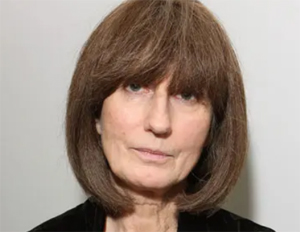
Gareth Pierce
Finally, we heard from Gareth Peirce, representing the National Union of Mineworkers (NUM).
Peirce said that the NUM shared many of the views expressed by other trade unions in this Inquiry.
NUM members and their families experienced sustained assaults on their civil and political rights as the state set about destroying their industry and their communities, particularly during the decade from the early 1980s to the early 1990s. Many of these unlawful actions were perpetrated by the institutions of the state, not just the police.
Peirce explained the history of the NUM. Miners had been organising politically since the 18th century, and fighting collectively for better conditions. The NUM was established in 1945, just before the coal industry was nationalised in 1947.
In the early 1970s, the NUM took industrial action in order to secure more reasonable pay and safer conditions. They were committed to improving working conditions, which remained grim. They were able to contribute to a wider trade union movement.
This strength made them a target for Prime Minister Margaret Thatcher, who came to power in 1979. The security services and police conspired with the newly elected government, and selected media, to secretly attack the NUM. Some of these operations have come to light recently, many must remain as yet undiscovered.
MANUFACTURED DESTRUCTION
The Tories’ long-term aim was the de-nationalisation of the coal industry and the closure of UK pits. As the NUM sought to defend its members, the British state unleashed its full power against miners.
During the miners’ strike of 1984-85, the NUM faced an unprecedented show of state power, and a militarised police force, deployed nationwide. They openly used all manner of hostile tactics, introducing the practice of ‘kettling’ a crowd, extreme violence, and mass arrests to crush the strike.
Behind the scenes though, the establishment was also running its own covert campaign. There is already evidence – some obtained under the thirty year rule from government departments, some gathered from a long series of court cases, including a preliminary Independent Police Complaints Inquiry, some the work of investigative journalists over the years.
There is also clear evidence of the use of informers, infiltrators, provocateurs, bugging and surveillance, on a huge scale. Police violence was premeditated, union members were wrongfully arrested, evidence was fabricated by the police, and manipulated in an attempt to implicate senior NUM officials in criminal acts.
Nobody has been sanctioned for their part in this unlawful intrusion, and these unprecedented assaults. ‘National security’ was invoked to maintain secrecy and prevent accountability.
These false accusations were given a lot of publicity. The militaristic language of the government was parroted by senior police – talk of “battles”, “the enemy within”, “enemies of the state” – and mining communities viewed as a threat to society.
The government declared itself “at war with the NUM”. Although secondary picketing and large assemblies were not offences, the police routinely stopped vehicles and tried to disperse groups of pickets. They went so far as to seal off entire villages, impose curfews, sometimes even occupy them with police horses, which affected (and terrorised) the whole community, not just the striking miners. The police used harsh bail conditions to control those they’d arrested.
Police forces shared officers with each other, creating a de-facto standing armies. There were over 11,000 arrests over the course of that year, 7,000 pickets injured, hundredsof people imprisoned.
THE BATTLE OF ORGREAVE
At Orgreave, on 18th June 1984, 95 miners were arrested. Their trial (almost a year later) had to be abandoned when it became obvious that there had been mass fabrication of evidence by over 100 police witnesses.
The most senior police witness at the trial, Assistant Chief Constable Clements, admitted that the police had assumed ‘exceptional powers’ – never debated nor authorised by parliament – and had sent in cavalry charges alongside baton-wielding foot-soldiers whose orders were to ‘incapacitate’ the miners and their supporters. The victims of this brutality likened it to a ‘war movie’.
The police also admitted that Orgreave had been pre-selected as a battleground, just like Southall in 1979, which left hundreds of anti-racist protestors injured and Blair Peach dead.
The recently released Cabinet papers proved something that had been long-suspected – that the events of 1984-85 had been deliberately provoked by the state in order to privatise what was left of the coal industry, and also to demonstrate its ability to crush a union as strong and seemingly invulnerable as the NUM. It was thought that this would help them eradicate the rest of the trade union movement.
The government and National Coal Board lied to the miners all along. They sought to create divisions amongst the miners, to undermine the NUM, and ultimately to ‘fragment the public sector’. They drew up their plans well in advance. They planned to starve the striking miners and their families, withdraw social security benefits, and force the NUM to its knees financially.
The government knew that pit closures on the scale they were dreaming of (75 pits to close by 1985) would cause the loss of 70,000 mining jobs, and have a huge economic impact in many areas of the country. They knew this was a sensitive subject, so stipulated that these plans should not be put in writing, and their discussions not recorded or minuted. The government and National Coal Board continued to lie about their intentions, and accuse the NUM of scaremongering.
FIND THE MISSING PIECES
The Government wanted the strike to take place. They demanded that the police make more arrests, that the courts impose more severe sentences, and that more publicity was given to those harsh sentences. They suggested that cases were moved from Yorkshire to more ‘friendly’ courts elsewhere. According to the disclosed Cabinet papers, Ministers sought to use the courts as a political weapon of the state; the courts and due legal process were inappropriately intertwined with political imperatives.
The NUM strongly suspect there was collusion with the spycops. They know that their members were surveilled and spied on by the state. They don’t know whether this was done by the SDS or other agents. However, there was talk of a secret intelligence unit, that could go “beyond Special Branch”.
MI5 expanded during the miners’ strike, and the line between them and the police sometimes blurred. The NUM only possess fragments of the truth, and hopes that the Inquiry can help to assess the motivation, scale and impact of covert policing during the strike.
When we look back at the year of the miners’ strike, we remember the hardship faced, but also the extraordinary solidarity shown. The state was explicit: the miners were the enemy. This meant that all of those who chose to stand in solidarity with the miners were volunteering for the ‘enemy’ side. ‘Public order’ was used as an excuse for these abuses of power.
What was done to the NUM was outrageous, it was unlawful, and it went beyond any possible justification.
The accompanying written opening statement from Gareth Peirce on behalf of the National Union of Mineworkers
COPS will be live-tweeting all the Inquiry hearings, and producing daily reports like this one for the blog. They will be indexed on our UCPI Public Inquiry page.
<<Previous UCPI Daily Report (5 Nov 2020)<<
>>Next UCPI Daily Report (9 Nov 2020)>>

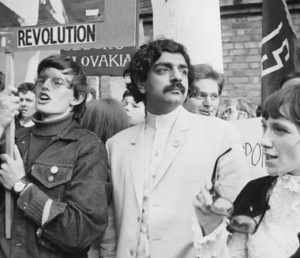
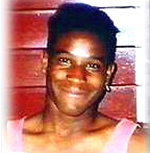
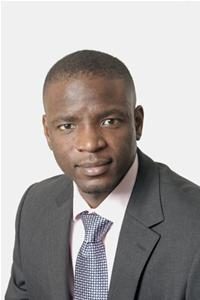
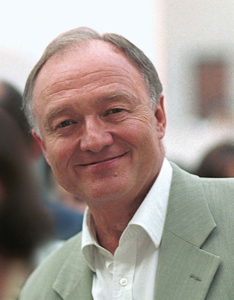
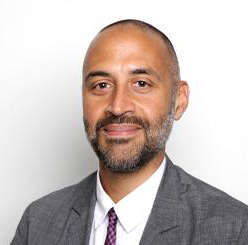
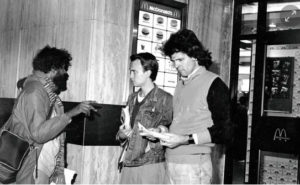
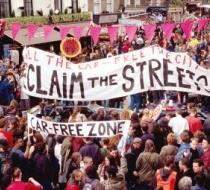
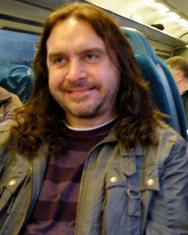
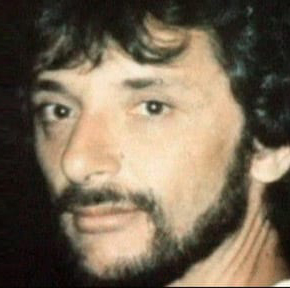
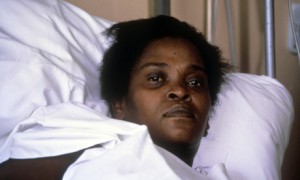
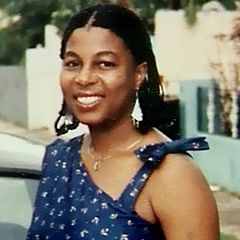
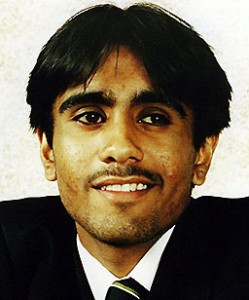
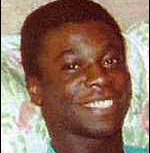
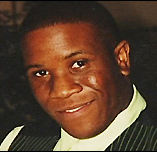
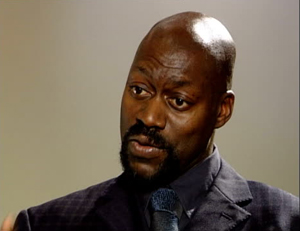
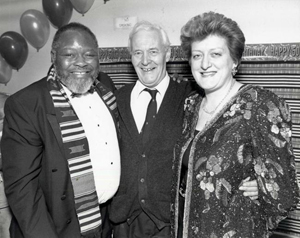
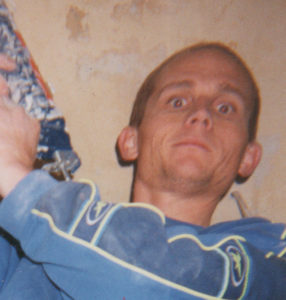
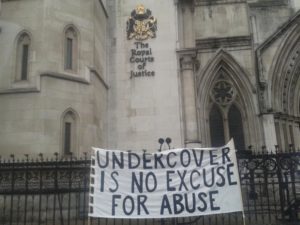 On Monday 2 November, the Undercover Policing Inquiry begins after five years of preliminary work.
On Monday 2 November, the Undercover Policing Inquiry begins after five years of preliminary work.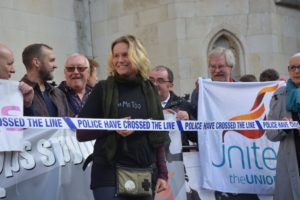
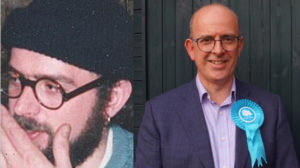
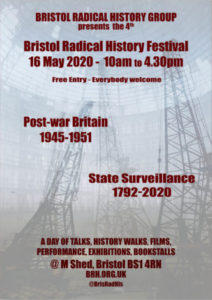 When: Saturday 16th May 2020, 10-4.30pm
When: Saturday 16th May 2020, 10-4.30pm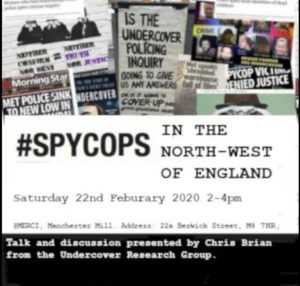 Political policing hit the headline almost a decade ago, when the activities of Mark Kennedy were exposed.
Political policing hit the headline almost a decade ago, when the activities of Mark Kennedy were exposed.